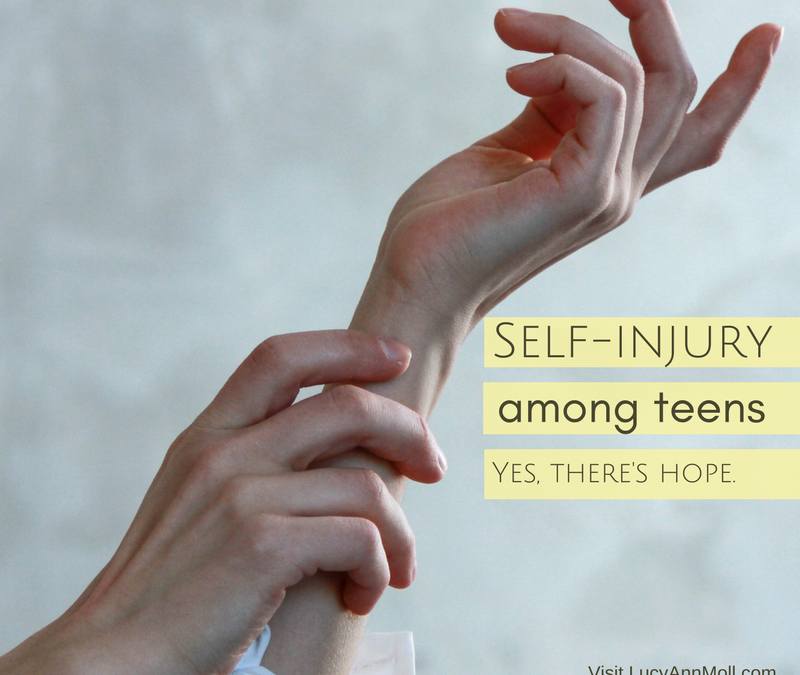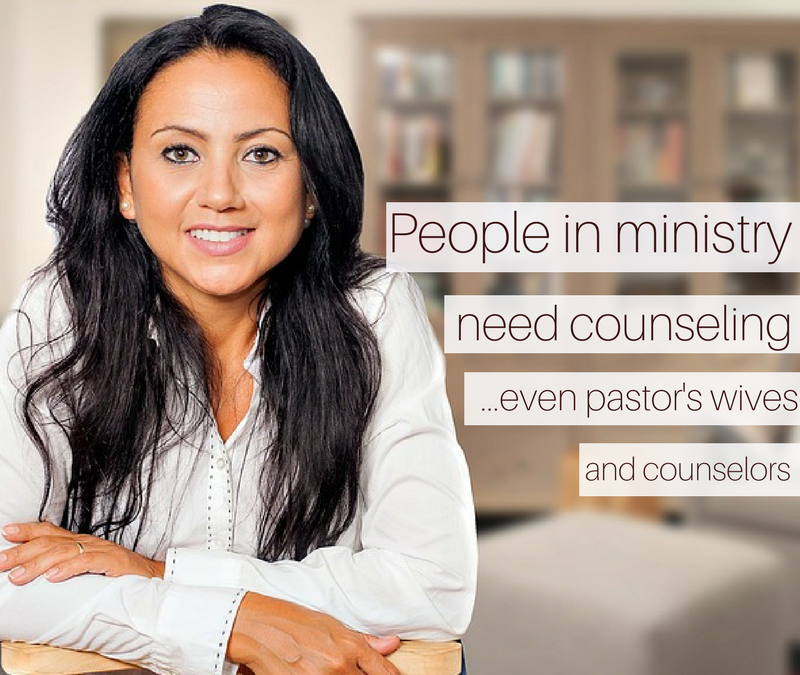
by Lucy | Apr 18, 2018 | biblical counseling, emotions, relationships
TEEN SEX: The thought that your son or daughter is sexually active cuts Christian parents to the core. Biblical counselor Julie Ganschow, who’s listed on Heart2Heart Counseling Directory, describes the prevalence and dangers of teen sex, and she encourages parents too. Her article appeared first here on The Biblical Counseling Coalition and is used with permission.

Fourteen-year-old “Angela” (not her real name) sat in my counseling office at the request of her mother. Angela had been displaying some behaviors that caused concern and led her mom to investigate her daughter’s activities. While checking Angela’s cell phone, she was horrified to learn that Angela had been sexually involved with her 16-year-old boyfriend.
Angela is one of nearly half of all students in ninth through twelfth grade who have had sexual intercourse. Sadly, 14 percent of those students have already had four or more sexual partners in their young lives.
Our teens live in a sex-saturated culture. Television and movies routinely show men and women who barely know one another having sex, and this promotes the idea that there is no difference between sex and love. It is critical that we communicate the message: Immoral sex is not “love,” it is only sex.
Click & Tweet!
So flee youthful passions and pursue righteousness, faith, love, and peace, along with those who call on the Lord from a pure heart (2 Tim. 2:22).
Dangers of Teen Sex
There are many dangers for a young person who becomes sexually active. Parents are most often concerned about pregnancy, abortion, and sexually transmitted diseases. However, with the marketing of vaccinations to prevent cervical cancer and medication to treat herpes, there is a mistaken view among some adults that teen sex is not a big deal. Nothing could be further from the truth.
 In addition to physical issues that can result from sexual activity at a young age, there are significant emotional dangers. Teenage sexuality often leads to emotional distress, especially for girls. In a majority of teen sexual encounters, there is no “relationship” behind the sexual act being performed. Teens are taught that sex is little more than the satisfaction of a physical urge and that everyone does it.
In addition to physical issues that can result from sexual activity at a young age, there are significant emotional dangers. Teenage sexuality often leads to emotional distress, especially for girls. In a majority of teen sexual encounters, there is no “relationship” behind the sexual act being performed. Teens are taught that sex is little more than the satisfaction of a physical urge and that everyone does it.
The reality is they are not emotionally ready for sex. Teenagers are already experiencing a complicated array of emotions from the hormonal changes taking place in their bodies, and when sexual activity is added it only makes those feelings more intense and confusing.
Emotional Impact
Sexually active teens often report having feelings of self-contempt and worthlessness. Angela eventually realized she had been withdrawn, depressed, and angry since becoming sexually active. One study involving 8,200 students, ages 12 to 17, found that those involved in romantic relationships had significantly higher levels of depression than those not involved in romantic relationships.[1]
Angela was brought up in a home where morality is valued. Her mom taught her to cherish her virginity, so giving it away while young and unmarried brought her tremendous feelings of guilt, shame, and loss.
Flee from sexual immorality. Every other sin a person commits is outside the body, but the sexually immoral person sins against his own body (1 Cor. 6:18).
Angela expressed a sense of being trapped into having to say “yes” to sex since that door had been opened. She described being pressured to have sex on every date she had with her boyfriend. Angela also told me she didn’t like sex, but didn’t think she could say “no” to him. She considered it to be meaningless and it had become a pastime, more of a social activity that she and all her friends were doing.
Over the weeks we met together, Angela realized that her view of sex lacked the sacred beauty and richness that God intends for it to have.
Angela learned that while she could experience the physical aspects of unity, sex outside of marriage would never contain the critical spiritual element– the oneness– that is present between a woman and her husband within the covenant of marriage.
Parents Needed
Our kids are confronted with all the wrong images and ideas about sex from the moment they wake up until they close their eyes and sleep. Sexual messages fill their music, commercials, radio, computer, classrooms, peer groups, parties, music videos, movies, books, phone conversations, and even their drive down the highway. Unless parents speak up, there will be no counterbalance to these messages.
Training us to renounce ungodliness and worldly passions, and to live self-controlled, upright, and godly lives in the present age (Tit. 2:12).
Parents are the best, most qualified people to tell their children the truth about sexual issues.
Click & Tweet!
It should be part of the training that takes place in the home. Kids need to hear from their parents that God gave married couples the gift of intimacy to enjoy. Teach them that within marriage, a couple can have abundant, fearless love. Trust and commitment in marriage make it possible for both husband and wife to enjoy each other in a way that is devoid of guilt, shame, fear, and doubt.
Questions for Reflection
How can parents better engage their teenagers and help them navigate these difficult issues around teen sex? What are some ways to protect teens from the cultural and social pressures to be sexually active?
[1] Kara Joyner and J. Richard Udry, “You Don’t Bring Me Anything But Down: Adolescent Romance and Depression.” Journal of Health and Social Behavior 41 (2000) 369-391
Counseling Hearts to Hope,


by Lucy | Apr 10, 2018 | biblical counseling, emotions, relationships
Self-Injury among teens (or anyone) doesn’t make sense, right? But for someone who self-harms, the act of cutting or burning (as well as other forms of mutilation) reduces emotional distress. And it has a root cause. This article by Julie Ganschow, who is listed on Heart2Heart Counselor Directory, first appeared here on The Biblical Counseling Coalition website and is used with permission.

Rebekka, 15, wore a hat, long sleeves, and jeans to our first counseling session. Not so unusual for a teen, except it was a hot August afternoon and the temperature outside was 101 degrees.
As I got to know Rebekka, I learned she was sent to see me because she was self-harming. She had no eyelashes or eyebrows, and her hat concealed large bald spots where she had pulled out her hair. I eventually saw the dozens of scars on her arms and up and down the length of her legs, where she had repeatedly cut herself and picked off the scabs. She also bore numerous burn marks from cigarettes and lighters.
Cutting and burning are the most common forms of self-injury among teens who we see in our counseling center.
Why Do Teens Self-Injure?
The teenage years (when self-injurious behaviors commonly begin) can be traumatic times. This can be especially in our culture, where children are presented with decisions and choices they are not mature enough to handle.
Our teens have greater pressures than at any time in history.
Click & Tweet!
College preparation now begins in eighth grade for many students, as they have to make choices about Advanced Placement classes. Many high school students work 20 or more hours per week to save for college. This is in addition to attending classes and doing AP homework.
At school, teens receive mixed messages about relationships and sexual orientation. Sexual behaviors are taught in graphic detail and promoted in the popular media. Our children are pressured to be sexually active long before they are emotionally and physically ready. They are thrust into many situations they are not ready to deal with! Some deal with the heartache of a broken home, spending alternate weekends with each parent, and the pressure that comes from being in the middle of divorce.
These are only the “normal” stresses and do not cover the extreme cases, such as sexual abuse by a parent or step parent; drug or alcohol use in the home by parents; out-of -control siblings who raise tension in the home; same-sex unions, sexually transmitted diseases or abortion.
Many children and teens come to believe there is little they can count on and nothing that is stable. Who can they talk to besides each other? Who can they really trust? All these factors feed into the world of self-injury among teens, and it becomes their method of dealing with indescribable pain and loneliness.
Like other self-injurers, Rebekka reported that she felt empty inside, stressed, and unable to express her feelings. She struggled to tell me she was lonely, not understood by others and fearful of intimate relationships and adult responsibilities. Self-injury was her way to cope with or relieve painful or hard-to-express feelings.
What Can I Do to Help?
There is no quick fix, no systematic formula to follow in stopping self-injury among teens. I encourage parents to follow biblical principles rather than going the route of psychotherapy and secular counseling. Secular reasoning is contrary to biblical methodology. The self-injurer doesn’t have an illness that can be medically diagnosed. Rather, she has is a faulty coping mechanism that has become a sinful habit.
Whenever possible, I involve the parents in the counseling process. We teach the parents how to disciple their child through this turbulent time in life. God entrusted Mom and Dad to care for their child and I am there to support them in teaching, rebuking, correcting, and training their child in righteousness (2 Timothy 3:16).
The biblical perspective on self-injury among teens is that it is primarily a heart issue (Matthew 15:11; Matthew 15:17-20; Luke 6:43). Like other self-injurers, Rebekka had an overall focus on herself: her pain, loss, feelings, her wants, and her desires.
She learned to examine her heart in light of Scripture (Jeremiah 17:9). The Bible reminds us that permanent change requires a change of heart brought about by a renewal of the mind (Romans 12:2). We had to identify the root cause of her behavior so true healing could take place.
Run to God with the Pain
I encouraged Rebekka to go to God in prayer and lay down the burdens of her heart.
The LORD hears the needy and does not despise his captive people (Psalm 69:33).
Directing Rebekka to the Psalms brought comfort and insight about crying out to God in distress. She was reminded that God cares about her, and the weight of guilt, shame, failure, anger, and rejection she carries. Also she was greatly comforted in realizing the Lord Jesus Christ was intimately acquainted with every sorrow and pain she had.
The Psalmist wrote,
Turn Yourself to me, and have mercy on me, For I am desolate and afflicted. The troubles of my heart have enlarged; Bring me out of my distresses! Look on my affliction and my pain, And forgive all my sins (Psalm 25:16-18, NKJV).
In biblical counseling, Rebekka learned the necessity of repentance. She learned about the sovereignty of God, people pleasing, and how to deal biblically with anger, hurt, and bitterness. As her mind was renewed, she began to understand the role idolatry played in her behaviors. She realized how worshipping her idols only led to guilt, shame, and deception and that, in reality, self-injury didn’t help with her pain after all.
Initially she experienced many failures and would still revert to cutting or burning herself, but Rebekka persevered in righteousness. She was determined to glorify God and worked very hard to stay in the Word, put the behavior off, renew her mind, and put on the new self (Ephesians 4:22-24).
She made life application of what she was learning and denied her fleshly desires. Six months later, she had eyebrows, eyelashes, and the bald spots on her head were covered with hair. The real triumph came when she gave her parents her “treasure box” of razor blades and burning materials.
Click & Tweet!
Today, Rebekka is free.
So if the Son sets you free, you are truly free (John 8:36, NLT).
Join the Conversation!
Do you believe the Word of God is enough to address even the “hard cases” in counseling?
Counseling Hearts to Hope,


by Lucy | Apr 5, 2018 | Counselor Resources, relationships
People in ministry need counseling too, right? But some are reluctant to get it. Even pastor’s wives, biblical counselors, Bible study leaders, and so on. Here’s biblical encouragement for you. By guest writer Eliza Jane Huie.

“Is there a back door?”
The question was not only unexpected but also a bit bewildering. The caller was confirming her counseling appointment and wondered if there was a less conspicuous entrance she could access. She went on to explain that her husband was a pastor of a church in the area. This is one reason she was afraid to be seen coming into a counseling office.
This desire for anonymity didn’t have to do with our counseling center. She shared how we came highly recommended. And it didn’t have to do with any high-profile situation or scandal. It had everything to do with the fact that she felt shame from the reality that she, a pastor’s wife, was needing counseling.
Shouldn’t people in ministry — and especially the pastor’s family — have it all together? Shouldn’t she be the one doing the counseling? And what if her husband were to join her for a session? Would they ever be able to conjure up a good enough reason to quiet the barrage of suspicion that might be raised?
A back door seemed the easiest answer.
The Shame of Needing Care
The caller is not alone in her fears.
Click & Tweet!
Indeed, many people in ministry, including some biblical counselors, go without care simply because of a common misconception that they should “have it all together.” How can a pastor, pastor’s wife, ministry leader, missionary, or the like be competent for ministry if they need counseling? People under their leadership might ask this question. It is a question that, like the caller, may bring shame.
The concern isn’t fully without merit. Certainly there are things that can cause a pastor or leader to need to step away, but just because people in ministry are seeking counseling doesn’t mean that they are dealing with that kind of a situation. This stigma may keep them or their family from getting the care they need.
Click & Tweet!
Hope-Sustaining Help
I have had the privilege to care for several people who are either directly in ministry or part of a family in ministry. So I know how providing a safe and confidential place to process life can be incredibly valuable for people in the ministry spotlight. Counseling has been an infusion of sustaining hope to those who find themselves facing personal trials amidst the call to ministry.
I read a personal story of one pastor who benefitted greatly from taking the advice that he had given countless times to people sitting in his office. “Set up an appointment with the counselor I’ve suggested to you. You need safe ears—someone with years of experience who doesn’t know you as well as I know you.” Taking this step himself changed his ministry. His only regret was not doing it sooner. It is now the advice he shares will those entering the ministry.
Encouraging Counseling for People in Ministry
If that is the case why would we ever want a stereotypical stigma to get in the way of anyone getting this care? In fact, people in ministry are more energized for ministry when they are also cared for. Since this is the case, shouldn’t churches and ministry organizations encourage this for those in leadership and their family members? This is the “putting on your oxygen mask first” concept encouraged by those with years of experience in leadership.
I personally know a church that leads the way in breaking this stigma by providing 10 counseling sessions to anyone on their staff. No strings attached. Ministry leaders can take advantage of this at their own discretion.
Another ministry I’ve worked with provides mandatory counseling sessions at their yearly leaders’ retreat. The counseling was provided by a trusted third-party team of biblical counselors. It provided confidential space for leaders to share their heart without judgment. Since everyone at the retreat had a complementary session scheduled into their retreat time, nobody was singled out. By introducing this avenue of care in this way, it broke the ignominy that can accompany leaders or their families when they seek counseling.
Step Toward Help Today
The woman looking for the back door that day ended up coming to our counseling center for the next six months. By finding a place to work through her struggle she found new ways of processing and understanding her circumstances. And even better, she found fresh hope in her ministry role as a pastor’s wife. She never used the back door (though that was the subject of a couple of our counseling sessions). What is even better she now feels no need to even ask for it.
If you are in ministry or leadership (or are a biblical counselor), you shouldn’t be ashamed to get the help you need. Whether it is dealing with a significant crisis or even processing the everyday realities of ministry life, you will flourish when you are cared for. Take the step today and contact a trust faith-based counselor who can walk with you in the midst of your ministry calling.
Do you need help finding a biblical counselor?
On Heart2Heart Counselor Directory, you’ll find female biblical counselors by state and specialty. Almost all of them also offer counseling by Skype or other online option. Check out Heart2Heart Counselor Directory here. (If you’re a counselor and would like to be listed on Heart2Heart, simply fill out this form. A basic listing is free.)
Biblical Counseling Center offers complimentary counseling to pastors and their families. Contact BCC here.
Also, the Biblical Counseling Coalition, the Association of Biblical Counselors, and the Association of Certified Biblical Counselors all have connection pages to help people find a counselor near them. You can also contact the Christian Counseling and Education Foundation.
 About Eliza Huie
About Eliza Huie
Eliza Huie is the Executive Director at Life Counseling Center, a biblical counseling ministry in Ellicott City, Maryland. She has a Master’s in counseling, advance certificates from CCEF, and holds a graduate license in counseling. She is the author of Raising Teens in a Hyper-Sexualized World and Raising Kids in a Screen-Saturated World (released Spring 2018).
Counseling Hearts to Hope,


by Lucy | Mar 26, 2018 | biblical counseling, relationships
Are you the mom of grown children? Have they made foolish choices? Believe me, you are absolutely not alone. Today’s guest writer is Suzanne Holland (listed on Heart2Heart Counselor Directory), has her own story to tell and words of godly wisdom. Her article appeared first here and is used with permission. (Edited for space.–LAM)

A few weeks ago, I wrote about some of the regrets that I experience, now that my children are grown and have left our home. I heard from quite a few of you about that post. And I learned that I am definitely not alone in looking back on those child rearing days with a few tears.
What I also heard from many of you is that those tears continue to run fresh at times, as our grown children make foolish choices. So today, I’d like to talk about how we can deal with our emotions and how we can honor God when grown children choose a wrong path.
Beloved Children, Foolish Choices
First, let me say that we should probably expect that our children will make a few bad choices. After all, their brains are not fully developed until they are 25 years old. Also, know you cannot control your grown children, nor should you try to do so. (But if he or she is living under your roof or receiving material support from you, then you do have some leverage to enforce rules.)
So, when grown children make bad choices, what are we to do?
Click & Tweet!
I believe that there are a few things that we can and must do in this circumstance.
1. Pray for Grown Children
The first thing is to pray. God calls us to pray without ceasing, and this is no exception. Ask the Lord to show your child that the choice he is making is foolish. If your child is a believer, ask that the Spirit of God would convict him. But if he is an unbeliever, then ask the Lord to use the circumstance to bring about his salvation.
Pray often, both for your own ability to honor God in the circumstance and for your child’s well-being. But don’t forget that the reason your child was created is to bring glory to God. Above all other requests, ask the Lord to make His glory the deepest desire of your heart in the situation.
2. Counsel Grown Children
Second, when our grown children make bad choices, we must offer them wise counsel. The Bible tells us that iron sharpens iron, and that two are better than one, so why should it be any different with our children? If you are on even halfway good terms with your son or daughter, you should be able to speak to them frankly and honestly about your thoughts on their decision.
If you can’t speak face to face, write them a note or call them on the phone and express your concerns. As you would with any adult friend, be respectful and don’t attack them personally. Just point out the downside of their thinking, and let them know that you are concerned, and that you are keeping them in your prayers.
3. Trust the Lord with Your Grown Children
If your child chooses a path that you believe will surely bring disaster, you must trust the Lord with them, and leave it in His hands.
I know personally that this is much more easily said than done but, my dear sister, you must do it. Though this is your beloved child, and you are deeply disappointed or even heartbroken over his choice, know that the Lord weeps with you. He also loves your child and desires the best for him even more than you do. But, one advantage God has in seeking that “best” is that He actually knows what it is!
Dear mother of a wayward child, your Father knows better than you do what is best for that son or daughter. Though what you see before your eyes may look like disaster or doom, God, from the other side, may see salvation or sanctification.
Encouraging Words for Your Grown Children
The most comforting and encouraging Scripture passage I have found on this topic is Isaiah 55: 6-11. I’d like to walk through it with you, adding a few comments along the way to help you with the application.
Seek the Lord while he may be found;
call upon him while he is near;
This goes along with my first bit of counsel, to pray for your child. Pray this Scripture for him, that he would seek the Lord, even as you are seeking the Lord’s will for your response
let the wicked forsake his way,
and the unrighteous man his thoughts;
If your child has fallen into sin, pray for conviction and repentance, leading to salvation and/or sanctification.
let him return to the Lord, that he may have compassion on him,
and to our God, for he will abundantly pardon.
Pray that your child would turn to Christ, and that the Lord would have mercy on him, forgive his sin or foolishness, and restore or revive his heart.
Comforting Words for You
For my thoughts are not your thoughts,
neither are your ways my ways, declares the Lord.
For as the heavens are higher than the earth,
so are my ways higher than your ways
and my thoughts than your thoughts.
This is for us, fellow brokenhearted moms. Remember this truth: God’s plan for your child may be different from yours, but it will always be better, by God’s definition, than you could ever have asked or imagined. Also remember God’s glory, not our children’s happiness, must be the deepest desire of our heart in this or any circumstance. Trusting that God knows what is best for your child is vital to your contentment and satisfaction in Christ.
For as the rain and the snow come down from heaven
and do not return there but water the earth,
making it bring forth and sprout,
giving seed to the sower and bread to the eater,
so shall my word be that goes out from my mouth;
it shall not return to me empty,
but it shall accomplish that which I purpose,
and shall succeed in the thing for which I sent it.
These verses remind us that words of truth spoken to our children are never wasted.
Click & Tweet!
You don’t have to thump your Bible and quote verses to them in order to speak truth into their lives. You can convey Scriptural wisdom to them without quoting chapter and verse.
If they are particularly hostile or closed off to the things of Christ, just offer them your wisdom, informed by Scripture, that comes from your sincere heart. If they reject it, you have done all you can and must leave it in the Lord’s hands. This is the absolute best place for it.

by Lucy | Mar 19, 2018 | biblical counseling, emotions, relationships |
There’s an addict addict in your home, and he (or she) is a loved one, and you need help. So what should you do? Guest writer Julie Ganschow, a biblical counselor listed on Heart2Heart Counselor Directory, shares understanding and direction. Her article appeared first here on her website and is used with permission.

When you learn your loved one is an addict it rocks your world. The first thing you have to understand is that life will never be the same. Whether the addict is your spouse or your child, your life is now going to be different. I realize that is a rather hopeless statement on face value, but it doesn’t have to be.
Life not being the same doesn’t mean it will always be bad and chaotic; it means it will be different.
The realization that your spouse or child is an addict is horrifying and terrifying. Suddenly all the crazy things that have been happening make sense. Their moodiness, anger or rage, isolation, disappearing for periods of time, financial problems, secrecy, all these things come together in an ugly realization.
When you really think about it, life has not been “the same” for a while now. The difference is, now you can identify the reason why. Now you can make changes that will help you and your family—including the addict—to adjust to the changes.
Yes, You Can Move Forward
As terrifying as learning the truth about your loved one is, there is something strangely comforting about understanding the reason behind all the crazy things that have been happening in your lives. Now you can arm yourself and become informed about what you are dealing with. You can learn how to respond and what not to do. So while life will never be the same, and no one ever wishes for these kinds of changes, you can now at least meet life on life’s terms and deal in reality. Accept what you are dealing with and that you will grieve and endure suffering in this process.
You have taken steps into suffering and sorrow already. Having a loved one that is addicted to alcohol or drugs tends to be seriously distressing.
Having an addict in the family causes problems in a wide range of areas. An adage that you need to remember is, “Addicts don’t have relationships. They take hostages.” An addict is interested in having a relationship with only the substances that he ingests. There is no room in his heart for a relationship with any person that will detract or distract him from pursuing what he really loves: His addiction.
The people in the addict’s life are tools to help him get what he wants which is drugs or alcohol. People are there to be used. I won’t deny that the addict may still love you on some level, but if the choice is you or the substance he ingests, any good addict will choose the substance over you. This is why in families the addict can cause such a disruption. They are highly manipulative, skilled in lying, and playing on the sympathetic heartstrings of those who love them. When they are denied what they want, you see their true love and allegiance come out as they scream, and tantrum, and threaten, and rage against anything and everyone that gets in the way of them getting high.
Why ‘Stop it’ Won’t Work
The addict’s life becomes all about self-gratification – meeting the felt needs of excitement, pain relief, escape, or comfort. They are inward focused and all that matters is getting their needs met in whatever way possible, whether it is begging, borrowing or stealing from you. The pursuit of self-gratification becomes all-consuming.
We consider attaching the label “addict” when a person’s desires have become idols. The addict is an idolater because he worships something other than God.
We have been created to worship God, but the addict’s sinful lusts have driven him to worship and idolize other things; the things of the world. This is why having an addiction is a kind of worship and why addiction is a worship disorder. The addict has a heart/soul problem, not a medical or psychological problem.
Continually feeding the idol of drugs or alcohol will eventually create a physical dependency, but the heart which Jeremiah. 17:9 identifies as self-focused, deceptive and desperately wicked, has been enslaved long before the body becomes addicted. The addict’s heart—his thoughts, beliefs, and desires—were hooked first.
The mind is focused on the flesh. Therefore it becomes hostile to the things of God, and the person becomes a commandment breaker and very often a lawbreaker (Romans 5:8).
“Addiction” becomes a self-perpetuating cycle of self-worship and self-abuse as the addict becomes a slave of self. What he or she once controlled, now controls them.
Click & Tweet!
What You Can Do
While you can’t stop them from sinning, you also don’t want to continue to do things that will enable them to get high or drunk. The phrase “don’t be an enabler” may be familiar to you as coming from the 12-step world of Al-Anon. Don’t discard the principle because you don’t like the source. Other words for enabling are: allowing, permitting, empowering, aiding, assisting, facilitating, making possible. In other words, don’t willingly help them to get high, and don’t do things that make it easier for them to do so.
Make financial boundaries: Implement boundaries to detach yourself financially from your addicted loved one. You do not control whether the addict uses or not, but you can control whether (or how much) you contribute to funding the addict’s chemical use.
Do not give money to your addicted loved one. (Most people I counsel this way refuse to implement financial boundaries. The result is usually more of the same.) Do not provide vehicles, insurance funding, or tuition to addicted persons. I commonly see parents let addicted children live in their homes rent free. Ousting the addict into independent living will not necessarily stop chemical use but it will require them to divert more money from funding their addiction to paying for their independent room and board.
If your son, daughter, or spouse makes the decision to live as a homeless person, it will hurt you terribly.
But please understand that they will do this until it is time for them to change. You cannot change them or those circumstances. It will not help them for you to give them a bed in your home if they continue to live the lifestyle of an addict. In fact, you will be hurting them.
Allow natural consequences: The emotional struggle to truly turn the addicted loved one over to God and the fearful “natural consequences” that the addict may encounter (or possibly die from) such as crime, personal neglect, or intoxicated accidents commonly prevents family and friends of the addicted person from truly “letting go.”
This requires a leap of faith, and constitutes a trial for friends of the addicted person.
I have heard transformed (repentant) former addicts refer to it as “coming to the end of one’s self.” Often a similar dynamic holds true for the family and friends of the addicted person, and their unwillingness to trust God in the full vent outcome for the addicted person. This may seem harsh and unloving, but I assure you, pain is a strong motivator for change.
If you are in such circumstances, please seek help from a knowledgeable Biblical Counselor for yourself and your other family members to deal with the pain and resulting emotions from having an addicted-idolater in your family.

Resources for YOU!
Books:
Divine Intervention: Hope and Help for Families of Addicts
The Heart of Addiction by Mark E. Shaw
Addictions: A Banquet in the Grave by Ed Welch
Crossroads: A Step-by-Step Guide Away from Addictions by Ed Welch
Counseling:
If your loved one is an addict, you are on a hard road and you need help too. Contact me to schedule a no-cost 15-minute consultation to see how biblical counseling can help you.
Counseling Hope to Your Heart,

by Lucy | Mar 15, 2018 | biblical counseling, relationships
 Engaged couples (and their loved ones), please pay attention for the common premarital pitfalls. Address them before you marry. This article by biblical counselor Eliza Jane Huie appeared first here on The Biblical Counseling Coalition and is used by permission.
Engaged couples (and their loved ones), please pay attention for the common premarital pitfalls. Address them before you marry. This article by biblical counselor Eliza Jane Huie appeared first here on The Biblical Counseling Coalition and is used by permission.

As a marriage counselor, I have seen my share of troubled marriages. While each marital crisis is unique, one thing is universal for these couples: they did not get married to be miserable. They, like you, hoped to live happily ever after. They didn’t plan on one day looking at each other and questioning the decision of “till death do us part.”
In many cases, the troubles these couples face predate the marriage. The marital disappointments connect to the couple’s interaction before they said, “I do.”
If you are engaged, there are important conversations the two of you should have about your current relationship.
Click & Tweet!
The topics below highlight key pitfalls that engaged couples can fall into that will lead to marital distress if not addressed.
Building a strong marriage begins now.
Click & Tweet!
As you read, consider where your own relationship is and what may need to be addressed. Then share your thoughts with a trusted mentor or counselor.
Common premarital pitfalls include:
1. Expecting Your Fiancé or the Relationship to Carry Too Much
If your relationship has advanced to engagement, it means you have shared significant moments together. You are likely a source of strength for each other. Your fiancé may know you better than anyone else. This is wonderful and probably a big reason why you want to spend the rest of your life together.
However, if your fiancé or the relationship is your ultimate source of hope or help, it will be more than the person or relationship can bear. We are designed to be dependent, but that dependency must always be ultimately on the Lord (Ps. 62:5-8).
- Have you felt the weight of being the source of your fiancé’s emotional balance?
- Is your fiancé the only one you turn to when you need hope?
- Does the status of your relationship determine your happiness?
Couples must point each other to the Lord. You can pray together and share Scripture to encourage each other. These are wonderful habits, but you both need to personally be resting in Jesus and looking ultimately and regularly to Him. Jesus is the best savior and refuge for your fiancé; you are not able to carry that weight (Ps. 46:1). This truth must be the foundation on which you build your marriage.
2. Swimming at Only One End of the Conversational Pool
When a couple only occupies the shallow end of this pool, they ignore vital conversations. They have a lot of fun and often have great memories of exciting times. They talk about the things they enjoy doing or interests they both have. Life is fun, just like kids playing in the shallow end of the pool.
But when things get difficult, talking is hard. They tend to get out of the pool when conversations go deep. They don’t have the relational stamina to swim in the deep end. It’s exhausting.
On the other end of this pool are the couples who tend to only swim in the deep end. Their conversations are often about vital areas of the relationship. They discuss their relationship, faith, family, and plans very deeply (and often late into the night).
When they have conflict, they talk through all the areas of hurt or misunderstanding. Every aspect of their relationship has deep meaning, and they intend to find it. While this kind of relationship has more stamina to tread the waters of deep conversation, they can lack the enjoyment, playful interaction, and rest that the shallow end can bring. This too is exhausting.
Couples need both. You need to know how to enjoy the less deep end of life that finds joy and pleasure in the little blessings all around you (1 Tim. 6:7). You also need to have the relational stamina to go deep with one another and not drown (Prov. 20:5). Learning this balance now will greatly help your future marriage.
3. Getting Physical
Until you are married, sexual activity is stepping outside of God’s plan for your relationship. God designed sex with a purpose. Sex invites another person into the most vulnerable places of your life. It is an act of building trust.
Click & Tweet!
Sex is also one of the most significant ways couples experience betrayal. Sex can build or break trust in a relationship. Infidelity or adultery is when married couples take sex outside of God’s plan (Ex. 20:14). Fornication or sexual immorality is when unmarried couples take sex outside of God’s plan (1 Thess. 4:3-5). These activities are battering rams to the walls of trust in your relationship and future marriage.
If you are engaging sexually now, you and your fiancé are saying, “I am willing to compromise on God’s plan of faithfulness for our relationship.” If you and your fiancé will compromise on faithfulness to God’s plan now, why should you trust that compromise in faithfulness won’t happen once you are married?
God wants you to have sex. He just wants you to enjoy it the way He designed it (Heb. 13:4). His design protects your future marriage. His design also builds trust into your relationship.
As you read through these pitfalls, did you see some characteristics of your relationship? If so, it isn’t a deal-breaker but it should be a conversation starter.
The Lord is a redeeming God. He is gracious and forgiving. Turn to Him for grace and consider talking with someone about these pitfalls. Seek out a wise mentor, a respected married couple, or a biblical counselor. Share this with them and begin the conversation. Having these conversations will help you now and in your future marriage.
Questions for Reflection
Of the three areas above, which concerns you most about your relationship? What will you do to address it wisely?
Eliza Huie is an experienced biblical counselor and serves as Director of Counseling at Life Counseling Center in Marriottsville, Maryland. She seeks to bring gospel hope to those hurting or seeking change.
Counseling Hope to Your Heart,



 In addition to physical issues that can result from sexual activity at a young age, there are significant emotional dangers. Teenage sexuality often leads to emotional distress, especially for girls. In a majority of teen sexual encounters, there is no “relationship” behind the sexual act being performed. Teens are taught that sex is little more than the satisfaction of a physical urge and that everyone does it.
In addition to physical issues that can result from sexual activity at a young age, there are significant emotional dangers. Teenage sexuality often leads to emotional distress, especially for girls. In a majority of teen sexual encounters, there is no “relationship” behind the sexual act being performed. Teens are taught that sex is little more than the satisfaction of a physical urge and that everyone does it.





 About Eliza Huie
About Eliza Huie

 Engaged couples (and their loved ones),
Engaged couples (and their loved ones),
